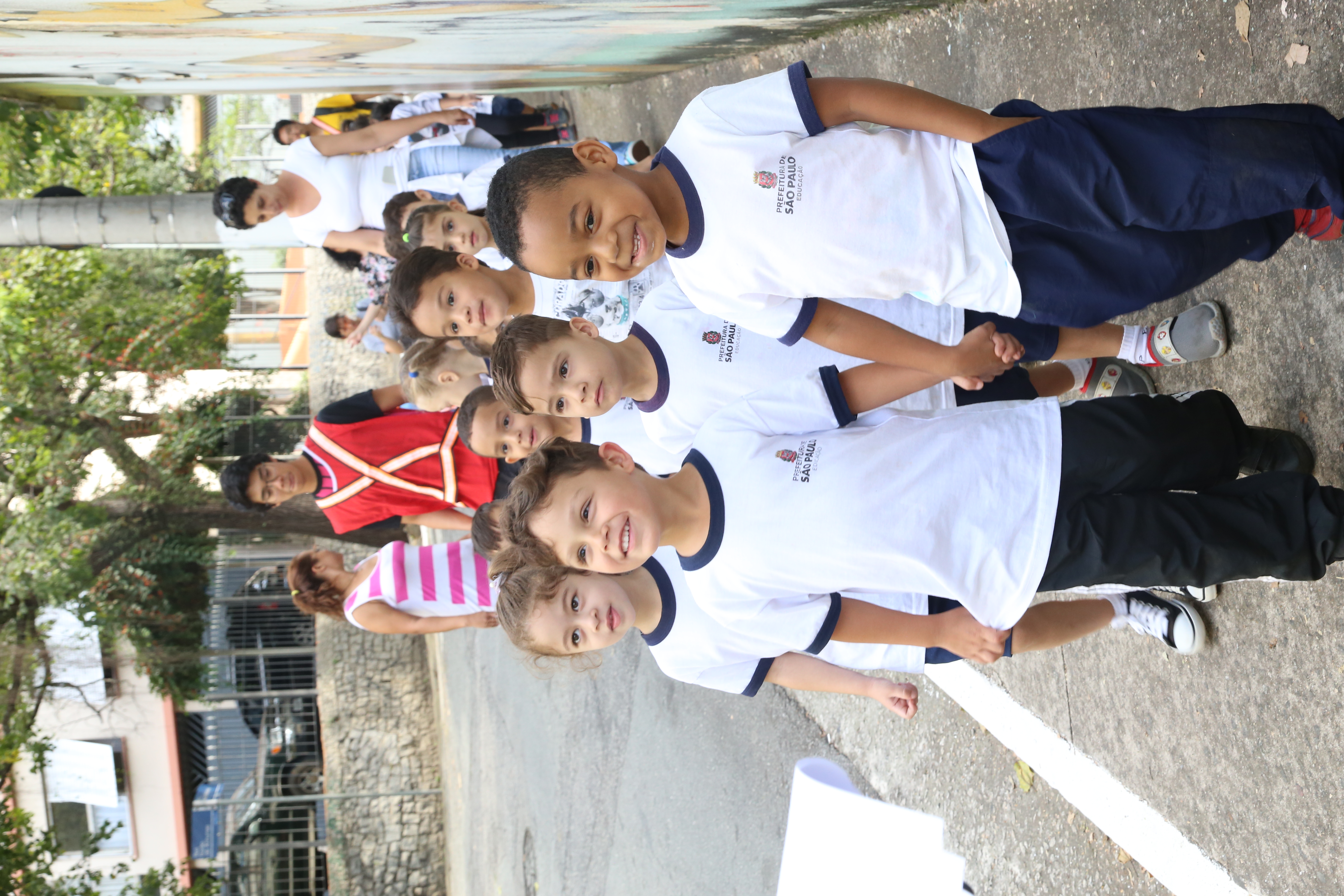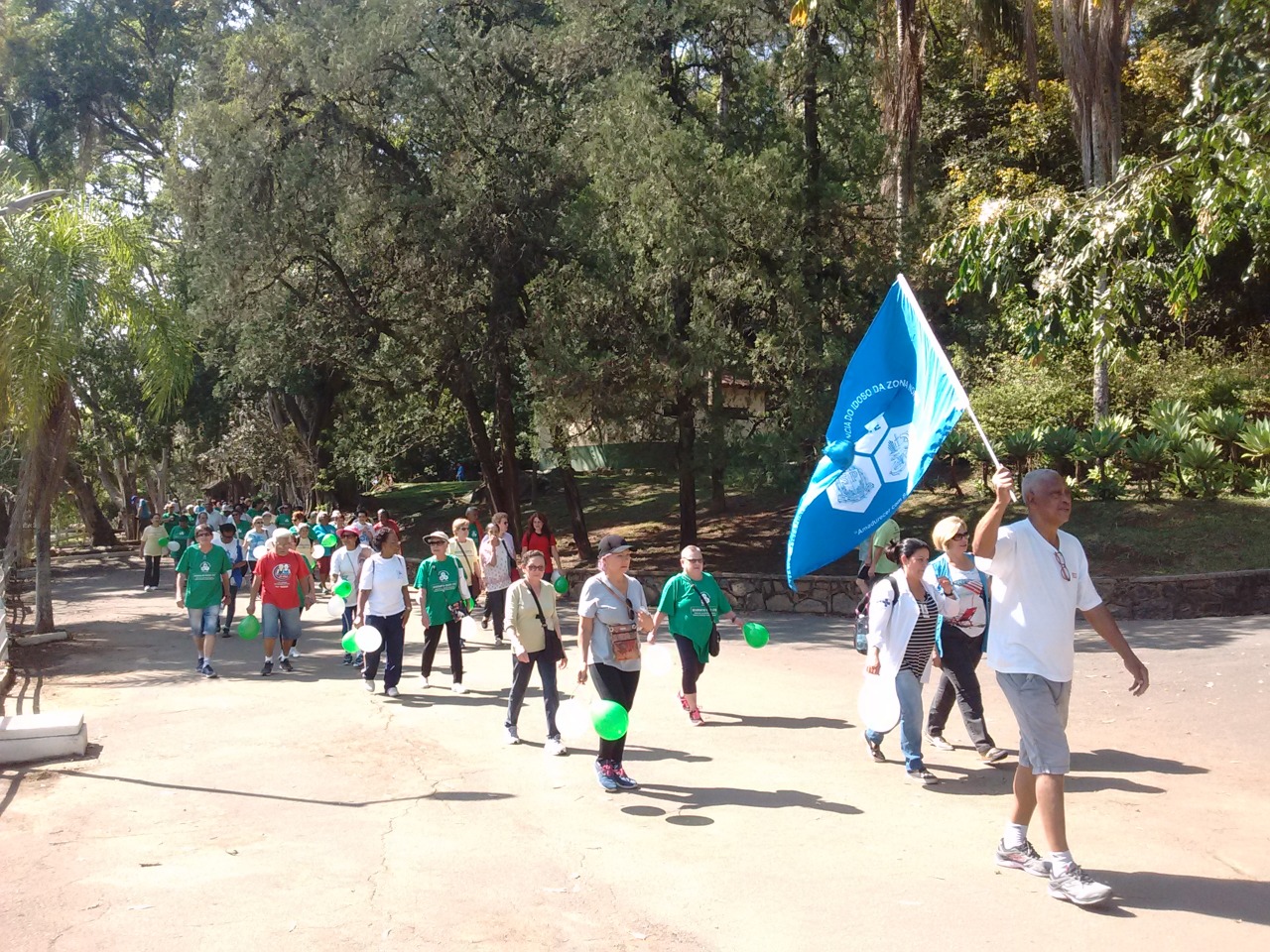Bonde a Pé (Walking Bus)
Description
The practice “Bonde a Pé” - Walking Bus is an walking activity that consists on promoting walkability in urban environments such as São Paulo in a practical way, while paying attention to the different perceptions which can be absorbed through an established route. The practice is an initiative of the NGO Corrida Amiga (Friendly Run, in literal translation), and can be carried out in any place and to any given age.
The main goal is stimulate the walking activity not only in specific events but also in daily situations such as going to work, to school etc; to promote a healthy lifestyle to all of the citizens and prevent diseases like obesity, pulmonary problems and even psychological conditions; to promote the reduction of GHG emissions and motorized displacement dependence to form a sustainable city, inclusive to all transportation modes that coexist in an urban environment; to inspire social changes for deep society transformations that could influence the next generations.
The first step is to find an initiative, institution or group that would be interested in promoting this kind of activity. The participants can be of all ages and conditions. The practice is conducted by volunteers that went through a training, provided by the NGO Corrida Amiga in São Paulo, and they will define and test a route to verify that it is walkable and safe (the length of the route will vary according to the number, age and condition of the participants). The method consists in walking thought this path while paying attention to accessibility aspects, sidewalk dimensions, quantity of trees and benches. The volunteers provide urban reading tools to the participants such as measuring tape, meter devices and pedometers, along with a paper sheet in which the participants can write elements that they see in the city.
http://corridaamiga.org/wp-content/uploads/2018/12/Balan%C3%A7o-de-Ativ…
Walking is the most primitive and democratic method of traveling. It is a healthy habit, that has the potential to to change cities in many different ways, promoting more crowded and dynamic streets and reducing toxic emissions in the atmosphere.<br />
It is crucial to utilize and prioritize environmentally-friendly ways of transport, to create more sustainable, equal, smart and safe cities that would provide the same kind of opportunities to everybody.
- Cartilha do Pedestre (The Pedestrian Booklet) - CET (Traffic Engineering Department): http://cetsp1.cetsp.com.br/cartilhadopedestre/cartilhadopedestre.pdf
- Centro, Diálogo Aberto - São Paulo Urbanismo: https://gestaourbana.prefeitura.sp.gov.br/arquivos/brochura_cda_7_10_13…
- Criança Segura Brasil (Safe Children): https://criancasegura.org.br/
- Cities Safer By Design - WRI: https://drive.google.com/file/d/14jpj1ttZk6vJGYG5qH9lf8B20luFcdhU/view?…
- Red Ocara: https://www.redocara.com/
Deliverables & Timeline
Resources mobilized
Partnership Progress
| Name | Description |
|---|
Feedback
Action Network


Timeline
Entity
SDGs
Region
- Latin America and the Caribbean
Geographical coverage
Photos


Website/More information
Countries

Contact Information
Silvia Stuchi, Coordinator
